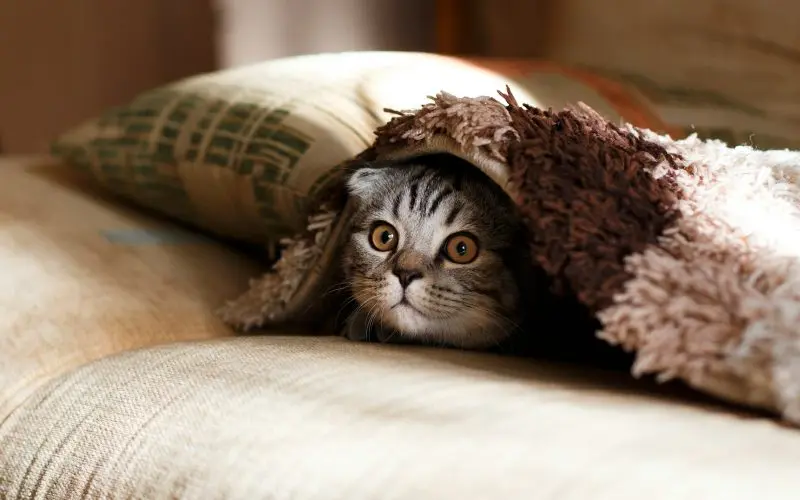The cause of idiopathic cystitis in cats (IC) remains a mystery. However, researchers believe that increased anxiety in these animals is a reason to check their health. Idiopathic cystitis is a non-infectious inflammation of the bladder. Although its symptoms often resemble those of an infectious lower urinary tract disease, IC can develop without any obvious cause and regardless of the pet’s age, gender, or breed. Affected cats strain while urinating, produce small amounts of urine (possibly with blood), and often cry out during the process. Unlike cases of bacterial infections, urine samples from cats with IC are sterile. Timely and accurate diagnosis of the disease gives these animals a chance to relieve their pain and recover quickly, as reported by Science Alert.
Previous studies have suggested that the roots of this condition lie in the connections between the hormonal and nervous systems of the body. Specifically, there may be an imbalance between the stimuli and responses related to the neurotransmitter adrenaline. This theory posits that excessive adrenaline release damages the connections in the bladder wall, exposing sensitive nerves and causing inflammation and pain. While this theory is not fully proven, the role of adrenaline indicates a psychological component—perhaps not just as a signal of IC but also as a potential cause.
What did the researchers discover? A team of veterinary researchers from the University of Montreal reached out to cat owners whose pets had been diagnosed with IC, asking them to fill out a questionnaire about their animals’ behavior and possible disease recurrences. Analyzing 33 survey responses, the scientists noticed a clear difference between cats that had only one episode of IC and those that experienced recurrences. More than half of the cats that had been ill only once were skittish around strangers, unlike those that had multiple episodes of IC. According to lead author Marion Demarchelier, the team initially assumed that cats with IC would often behave aggressively. However, it turned out that they were more prone to anxiety and withdrawal.
Veterinarians believe that IC should be viewed more as a consequence of a cat’s mental well-being rather than a bladder condition. Researchers suggest that helping anxious cats feel calm and safe could reduce the risk of urinary tract inflammation. Calming strategies include providing the animal with several safe hiding spots that it can use at any time to escape from family members. Pheromone therapy can also help lower stress levels. The team advises cat owners to pay closer attention to their pets when strangers are around, as fear and anxiety can have a more significant impact on the health of our furry friends than one might imagine. The results of the study were published in the Journal of Veterinary Behavior.


